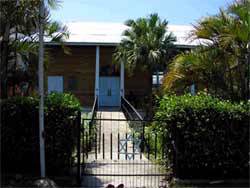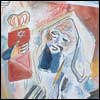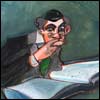Sosua is a small and pretty coastal resort in the north of the Dominican Republic. It is not very famous; most people have never heard of it. For some, however, it was their only hope of survival and a safe haven from Nazi Germany. In fact, while every other country in the world, including the United States, closed its borders on the Jewish refugees, Rafael Trujillo, the totalitarian ruler of the Dominican at the time, invited 100,000 Jews to come to his island. His motives may have been politically driven—he wanted a "whiter" population and a more economically successful and prosperous country—but he offered life and even food and work to concentration-camp-bound Jews. An offer they couldn't refuse, whatever the ulterior motives.
In the end only one thousand visas were issued, and unfortunately only 650 Jews actually made it to the Island. Trujillo gave them land to cultivate and animals to raise. With G‑d's help their farms succeeded and flourished, many growing into large productive meat and fruit businesses. This summer, I had the privilege of visiting this slowly fading community, as part of Chabad's summer outreach program to small and isolated Jewish communities.

It was a hot Monday afternoon and I was sitting with Baila, age 70, from a small shtetle in Austria. We were conversing in Yiddish. Before the war, her hometown was home to some 10,000 Jews. Her parents were Chassidim, her father a shochet. "He wouldn't let anyone—not a single traveler, beggar or vagabond—stay at shul alone on Friday night; he invited them all home."
Young Baila would often complain about the smell and appearance of some of the visitors. But her father would say: "These are our brothers and sisters, we accept them and help them however they are."
Tears came to my eyes when thinking of all that Baila lost: her shtetle, her beautiful Jewish upbringing and lovely Jewish home; her parents and her eight younger siblings, who all perished in the Nazi concentration camps.

At a young age she arrived at Sosua. Together with her Jewish brethren, Baila became a farmer. They built a small shul, but Jewish learning and observance was scarce. Baila's daughter received even less of an education, and unfortunately married out of the faith. Baila told me how much she cried the day her daughter told her she would be marrying a local boy. She wanted me to meet her granddaughter, Lima, which I did. I spoke to the five-year-old girl about Judaism and I gave her a children's siddur and a mezuzah for her room. I encouraged Lima's mother to light the Shabbat candles with her every Friday night and give her some Jewish education. Baila was shedding tears, I assume of joy, as we chatted.
Later that evening I had a meeting in Puerto Plata, a city 20 miles west of Sosua, with a Jewish population of about 3. I visited a family from New Jersey. The mother was a nice friendly Jewish lady, Paula, and the father a pleasant Dominican; they had met at high school back in the States and married. They had lived most of their married life together in New Jersey, where Debra, their oldest daughter has been in touch with her Judaism. She is very involved, and is interested in studying more. She goes to the local shul every Shabbat and even brings her family along. She also keeps kosher. Her mother isn't ecstatic about it, but accepts it.
I remarked to her mother how thankful and reassured she must be, knowing that on Friday nights her daughter was hanging out at the shul, with nice modest Jewish girls of her age, and not in some disco, drinking the night away with strangers. Of course she silently agreed.
As I returned to my hotel room that night, my thoughts about the day's meeting with these two families tumbled about in my head. I wondered if Paula's mother back in New Jersey cried, the way Baila had, when she was informed that her daughter would be marrying a Dominican non-Jew. I also thought about Baila's tears of joy as she watched her beloved granddaughter kiss the mezuzah, and wondered if Paula's mother similarly rejoiced in the knowledge that her oldest granddaughter is a proud and educated Jew.
I was thinking of the two mothers, one that had no opportunity to offer her child Judaism, and one that was apprehensive about her child's rediscovery of what she herself had turned her back on. And I thought about what an amazing and ironic world we live in today, which has dispersed us and disconnected so many of us from our heritage, yet also offers us the opportunity to practice Judaism openly wherever and whenever we choose to.
I was happy to realize that just like young Debra, Lima was now somewhat more Jewishly educated than her mother.
I understood how education is the future of our people, and I thanked G‑d that I had the opportunity to partake in spreading its message.
I encourage everyone to do his or her part in showing a fellow Jew how precious and important our heritage is. Echoing the words of Baila's father (may G‑d avenge his blood), "These are your brothers and sisters; we must help them however they are."







Join the Discussion